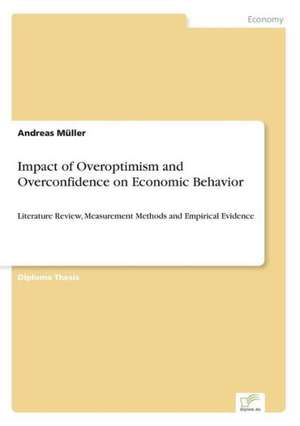Impact of Overoptimism and Overconfidence on Economic Behavior
Autor Andreas Mülleren Limba Engleză Paperback – 30 oct 2007
Preț: 407.98 lei
Preț vechi: 503.67 lei
-19% Nou
Puncte Express: 612
Preț estimativ în valută:
78.08€ • 80.66$ • 64.98£
78.08€ • 80.66$ • 64.98£
Carte disponibilă
Livrare economică 04-18 martie
Preluare comenzi: 021 569.72.76
Specificații
ISBN-13: 9783836606295
ISBN-10: 3836606291
Pagini: 80
Dimensiuni: 148 x 210 x 6 mm
Greutate: 0.12 kg
Editura: diplom.de
ISBN-10: 3836606291
Pagini: 80
Dimensiuni: 148 x 210 x 6 mm
Greutate: 0.12 kg
Editura: diplom.de

